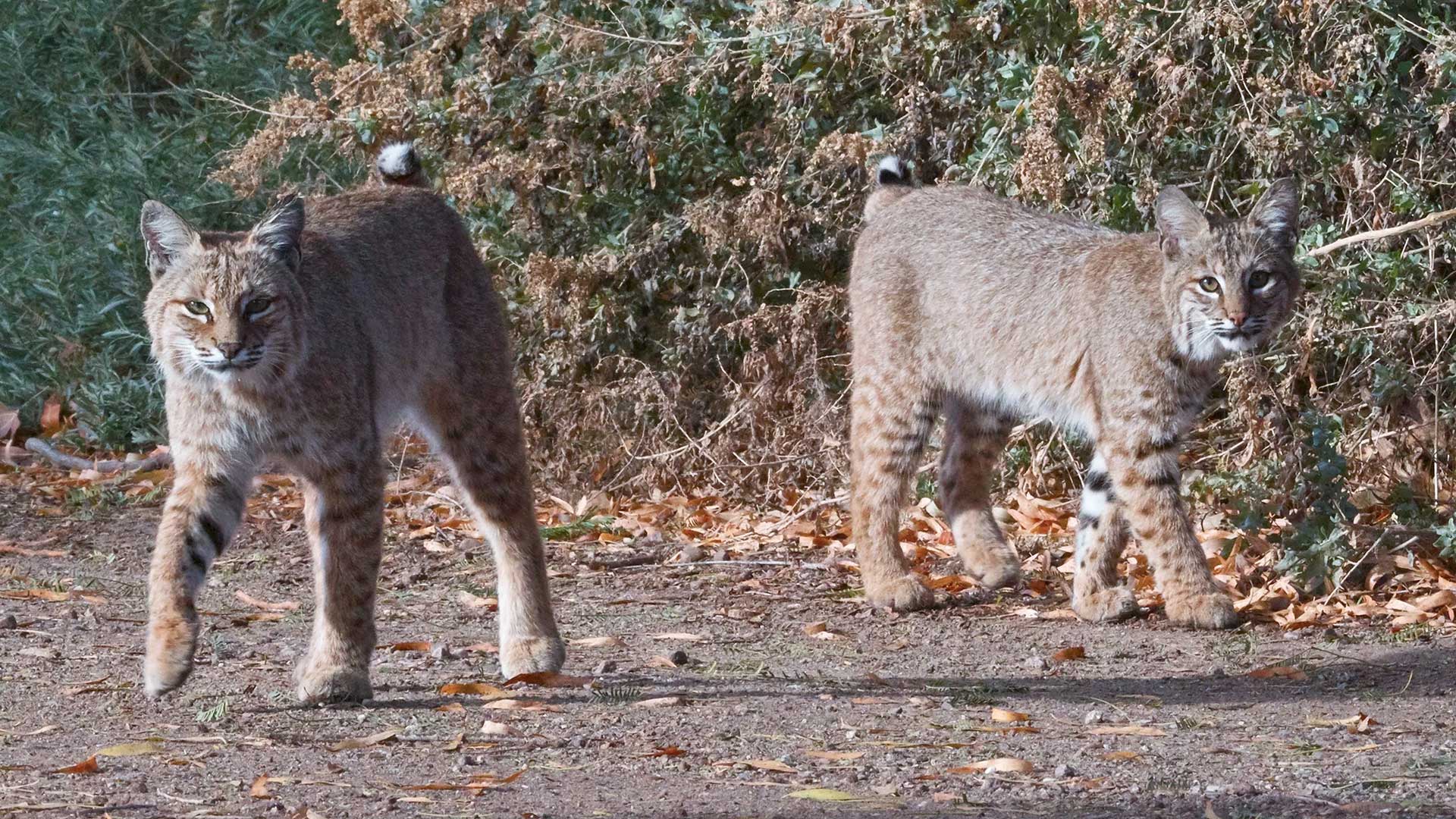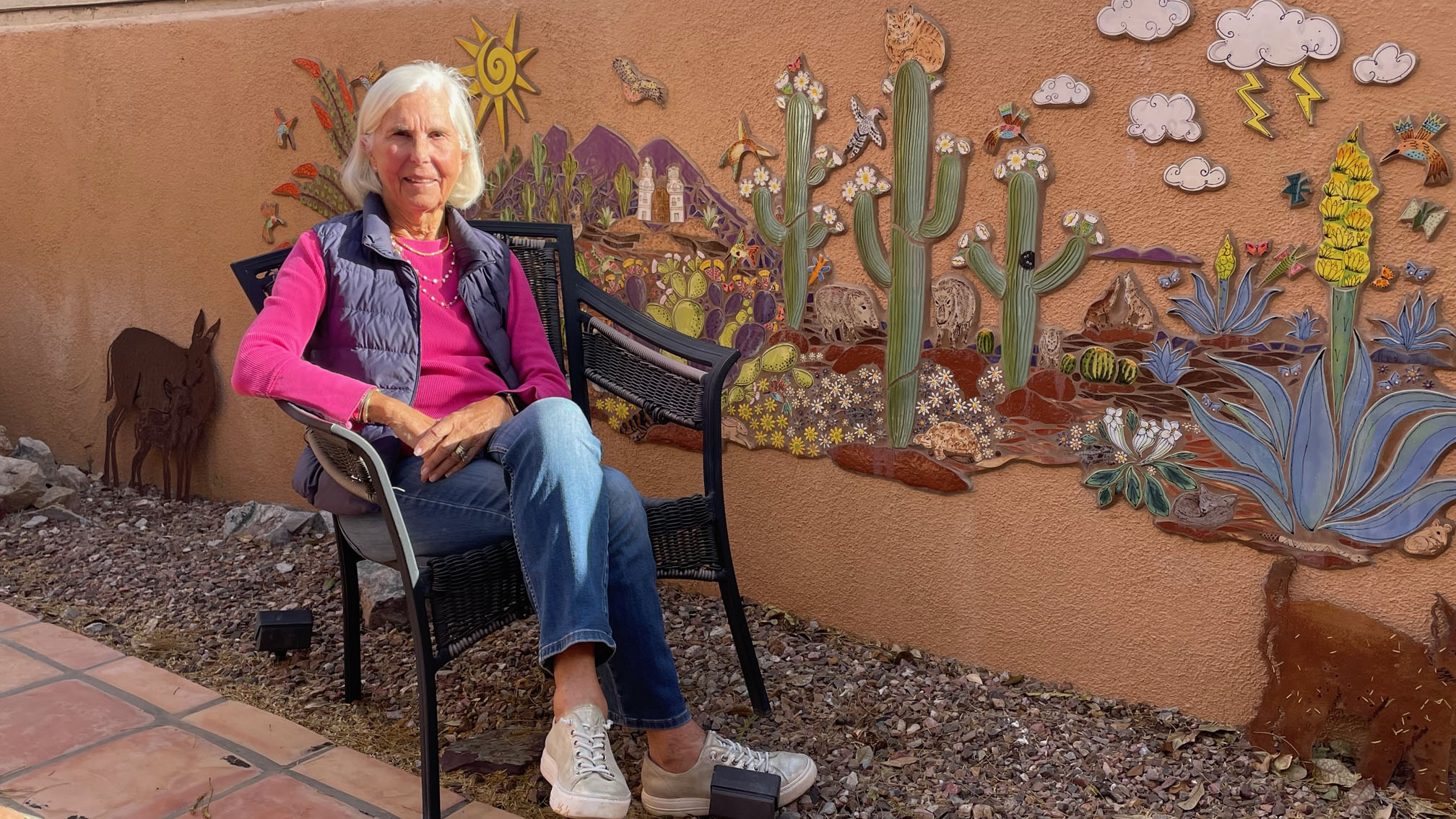 Bobcats in the wild.
Bobcats in the wild.
A group of Tucson volunteers- including retired scientists, government and private employees, artists and others- recently finished a four-year study about bobcats on Tucson's west side.
The Bobcats in Tucson Research Project focused on several aspects of the cats' lives including family units, habitats, and mortality rates from 2020 to 2024.
The animals face obstacles such as roads and potentially deadly traffic, people intent on killing them, and an ever-expanding urban area that reduces their natural environment.
However, retired biologist and primary investigator Cheryl Mollohan says the endemic cats have managed to hold on, working around the housing or other human-made construction, and trying to live and raise their kittens.
"They are so beautiful and so spectacular, so incredibly tolerant of us for having kind of grumpy little disposition. They're just amazingly tolerant of people, and that is part of why they continue to impress me," Mollohan says.
"You know, if you look around the world at spotted cats in general, most spotted cats around the world are threatened or endangered and bobcats are just incredibly common."
The area in the study's focus is from Saguaro National Park and Tucson Mountain Park on the west, Santa Cruz River on the east, Sunset Road on the north and 36 Street on the south, where experts caught and temporarily collared dozens of cats.
Scientists used state-of-the-art radio collars that allowed them to track the animals, log more than 50-thousand locations, and even remove the collars remotely when necessary.
"We put a satellite radio collar on them. The radio collars were kind of our limiting factor because they were $600 a piece. So they were quite expensive, but they were also remarkable," Mollohan adds.
She says the study could not have been possible without the support of many citizen scientists and groups such as Southwest Wildlife Conservation Center, funding from the Arizona Game and Fish Department Heritage Fund, Tucson veterinarian Ericka Johnson, and many others.
Retired resident, teacher and artist Gale Sherman joined the group in 2021 when she heard about them in her Starr Pass neighborhood.
She has been contributing by taking photographs of the charismatic cats.
"They've adapted very well to living with us. And right in my neighborhood, there's always been a mom, bobcat, and walking around with her kittens," Sherman says.
"This has been one of the most exciting times of my life. I just can't believe it. I talk too much about bobcats, and my husband, kind of, if he's close, hits me at the side to try to get me to stop," she adds with a laugh.
Bobcats in Tucson is holding two free and public events to release the 2020 to 2024 study, and to celebrate the felines:
**The first is Tuesday February 18 from 6 pm to 8 pm at Pima Community College's Downtown Campus in the Advanced Manufacturing Building, Azurite Room #390
**The second event is Wednesday February 19 from 4 pm to 6 pm at the City of Tucson's Ward 3 Community Room.
And while this study has been completed, Cheryl Mollohan hopes that additional investigations will take place throughout the city.
"We got reports of bobcats in central Tucson. I mean, we had reports of bobcats in Grant and Campbell, at the Arizona Inn, and many of those old neighborhoods," she says.
"And that is a whole other level of urbanization, because in many cases, they don't have access to washes or a lot of native vegetation. And I'd really like to see us eventually be able to study those cats because I think we take everything we learn and just take it to another level."
 Gale Sherman is a retired teacher and artist who has been ecstatic to participate in the Bobcats in Tucson Research Project as the group's designated photographer.
Gale Sherman is a retired teacher and artist who has been ecstatic to participate in the Bobcats in Tucson Research Project as the group's designated photographer.

By submitting your comments, you hereby give AZPM the right to post your comments and potentially use them in any other form of media operated by this institution.